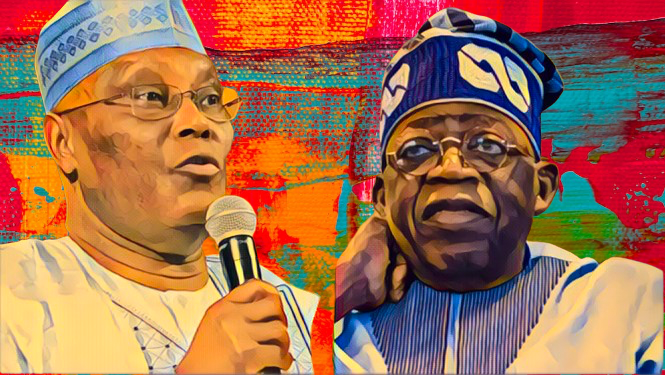The economic policies of President Bola Tinubu have come under intense scrutiny and criticism from Atiku Abubakar, the presidential candidate of the Peoples Democratic Party (PDP) in the 2023 General Elections. Atiku, in a statement released on Sunday in Abuja, voiced his concerns about the dire state of Nigeria’s economy, asserting that Tinubu’s performance on the economic front over the past six to seven months has been nothing short of disastrous.
In his statement, Atiku lamented, “The economy’s performance has, in recent weeks and months, been a subject of intense discourse among Nigerian citizens at home and abroad. Nigerians are gravely concerned, and rightly so, that Tinubu’s poor response to Nigeria’s economic challenges is setting the stage for a prolonged and deeper domestic economic crisis.”
Atiku went on to criticize the economic policies put forth by the President, which were ostensibly derived from a “renewed hope agenda.” He argued that these policies have ironically dashed hopes, caused pain, and sown despair among the population.
One of the most concerning aspects of Tinubu’s economic approach, according to Atiku, is the declining state of the private sector. He pointed out that small businesses are being stifled, and multinational companies are becoming increasingly wary of the Nigerian economy, leading them to exit the country in droves.
Moreover, Atiku highlighted the significant burden of rising living costs, which are disproportionately affecting the poor in towns and villages. Necessities, including bread, are becoming increasingly unaffordable for the average Nigerian, leading to widespread hunger and deprivation.
Atiku further criticized President Tinubu’s 2024 budget, characterizing it as a “business-as-usual exercise” devoid of concrete ideas and actions that would facilitate Nigeria’s journey toward economic transformation. He argued that the budget primarily consists of wasteful expenditures to support a bloated Federal Government, rather than empowering citizens to earn a decent living.
Regarding Tinubu’s handling of the new subsidy regime and the foreign exchange policy’s shift to a free-floating exchange rate, Atiku expressed his concerns. He described these initiatives as “uninformed, arbitrary, and chaotic,” lacking the necessary measures to mitigate their adverse and disastrous impacts on both people and businesses. He further criticized the inadequacy of Tinubu’s palliatives, characterizing them as “mean, pitiable, and contemptuous of the poor.”
In his statement, Atiku did not shy away from highlighting the similarities between President Tinubu’s approach and that of his predecessor in office, President Muhammadu Buhari. He accused Tinubu of perpetuating the practice of blaming his predecessor for inheriting a “dead” economy, emphasizing that this strategy only underscores Tinubu’s lack of preparedness for the challenges he faces.
Atiku concluded by urging President Tinubu and his economic management team to acknowledge their missteps and failures and seek guidance from those with a better understanding of the economic view. He emphasized the need for prompt action to prevent the economy from sinking further into crisis, leaving a critical question hanging in the air: Will they take the necessary steps to avert this impending economic catastrophe?



